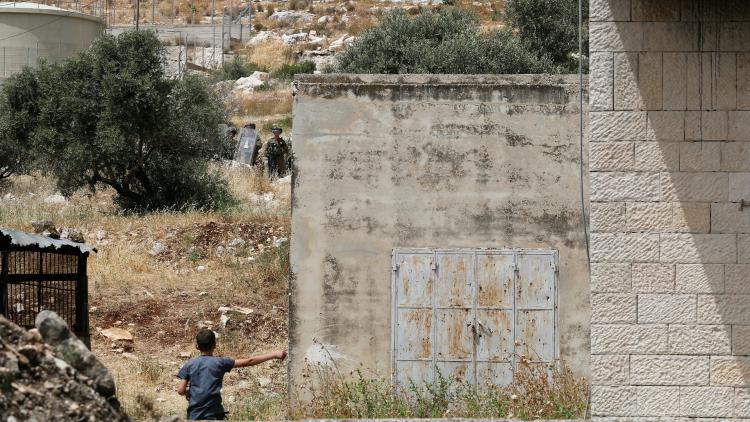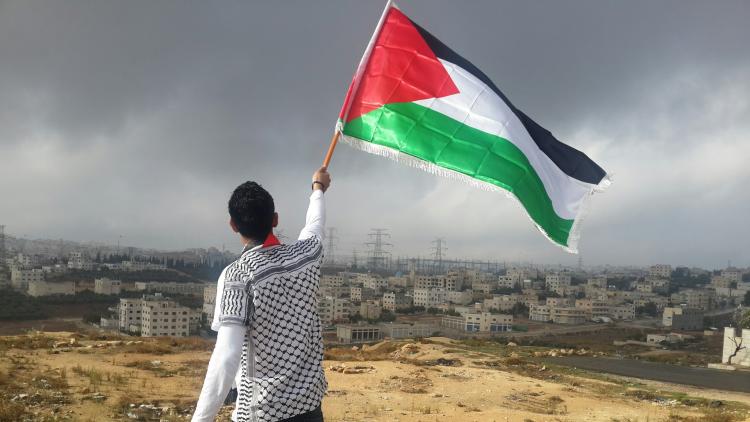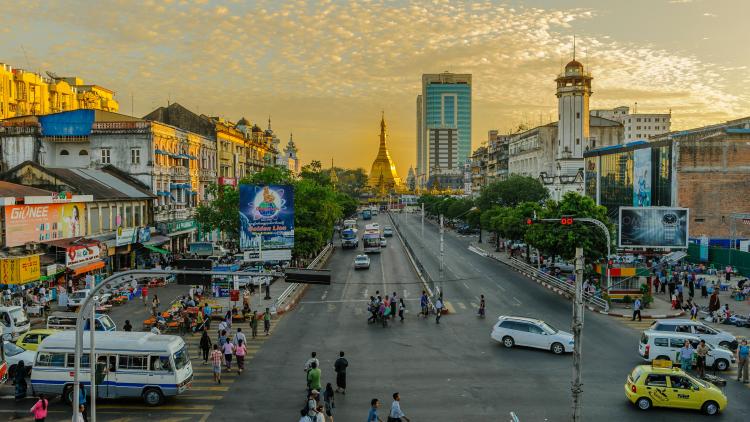MSc Sustainable Development (Online)


Key information
- Duration
- 2 years
- Start of programme
- April
- Attendance mode
- Part-time
- Location
- Distance Learning
- Fees
-
MA/MSc: £12,000
PGDip/PGCert: available as exit awards. - Course code
- OLTF0002
- Entry requirements
-
We will consider all applications with a 2:2 (or international equivalent) or higher in a relevant subject.
-
Afghanistan: Qualifications (Bachelor equivalency): Master's degree
Equivalent to 2:ii: 80% or 3.3/4.0
-
Albania: Qualifications (Bachelor equivalency): First Level Diploma (Diploma e nivelit te para) (3 Years) from a recognised institution
Equivalent to 2:ii: 7/10
-
Algeria: Qualifications (Bachelor equivalency): Licence; Diplome de [subject area]; Diplome d'Etudes Superieures; Diplome de Docteur end Pharmacie; or Diplome de Docteur en Medecine from a recognised institution
Equivalent to 2:ii: 12/20
-
Antigua and Barbuda: Qualifications (Bachelor equivalency): Bachelor's degree from the University of the West Indies
Equivalent to 2:ii: 2.7/4, B-, 60% or Lower Second Class Hons
-
Argentina: Qualifications (Bachelor equivalency): Titulo/ Grado de Licenciado/ Titulo de [subject area] (minimum 4 years) from a recognised institution
Equivalent to 2:ii: 6/10 or Bueno
-
Australia: Qualifications (Bachelor equivalency): Bachelor's degree from a recognised institution
Equivalent to 2:ii: 2:2 / Credit / 60%
-
Austria: Qualifications (Bachelor equivalency): Bachelor's degree from a recognised institution
Equivalent to 2:ii: 3.5/5.0 and overall Pass (Bestanden)
-
Azerbaijan: Qualifications (Bachelor equivalency): Bachelor's degree (Bakalavr Diplomu) from recognised institution
Equivalent to 2:ii: 70% or 3.5
-
Bahamas: Qualifications (Bachelor equivalency): Bachelor's degree from the University of the West Indies
Equivalent to 2:ii: 2.7/4, B-, 60% or Lower Second Class Hons
-
Bahrain: Qualifications (Bachelor equivalency): Bachelor's degree from a recognised institution
Equivalent to 2:ii: 74% or 2.67
-
Bangladesh: Qualifications (Bachelor equivalency): Master's degree from a recognised institution OR 4 Year Bachelor's degree from SELECTED institutions
Equivalent to 2:ii: Masters: 55% or 2.7. Bachelor: 60% or 3.0
-
Belgium: Qualifications (Bachelor equivalency): Licentiaat (Flanders) or Licencié (Wallonia). Post 2005 Bachelor/Bachelier 180 ECT degree from a recognised institution
Equivalent to 2:ii: 60% or 12/20 (Flanders); or 65% (Wallonia). Bachelor: 60% or 12/20
-
Bolivia: Qualifications (Bachelor equivalency): Licenciado or Título de [subject area] from a recognised institution. Minimum of 4 year
Equivalent to 2:ii: 67%
-
Botswana: Qualifications (Bachelor equivalency): Bachelor's degree (minimum 5 years) or Master Degree from the University of Botswana
Equivalent to 2:ii: C / 60% / 2:2
-
Brazil: Qualifications (Bachelor equivalency): Título de Bacharel / Título de [subject area] / Título de Licenciado/a (4 years) from a recognised institution
Equivalent to 2:ii: 6.5 or 65%
-
Brunei: Qualifications (Bachelor equivalency): Bachelor's degree (Honours) from recognised institution
Equivalent to 2:ii: Lower Second Class Hons; 50% / 3.5 out of 5.0
-
Bulgaria: Qualifications (Bachelor equivalency): Bachelor's degree from a recognised institution
Equivalent to 2:ii: 4.0/6.0
-
Burkina Faso: Qualifications (Bachelor equivalency): Diplome d'Etudes Approfondies. Diplome d'Etudes Superieures Specialisees
Equivalent to 2:ii: 13/20
-
Burma / Myanmar: Qualifications (Bachelor equivalency): Master's degree from a recognised institution
Equivalent to 2:ii: B- or 55% or 3.0/5.0 or 2.5/4.0
-
Cambodia: Qualifications (Bachelor equivalency): Master's degree from recognised institution
Equivalent to 2:ii: 65% or 2.7/4.0
-
Cameroon: Qualifications (Bachelor equivalency): Diplôme d'Ingénieur/ Diplôme d'Études Supérieures de Commerce (5 years) from a recognised institution
Equivalent to 2:ii: 12 (assez bien) or 2.5. 70-74/ B+
-
Canada: Qualifications (Bachelor equivalency): Bachelor's degree from a recognised institution
Equivalent to 2:ii: 2.7 or 67%
-
Chile: Qualifications (Bachelor equivalency): Grado de Licenciado en [subject area] or Titulo (Professional) de [subject area] (min 4 years) from recognised institution
Equivalent to 2:ii: 5.0/7
-
China Qualifications (Bachelor equivalency): Bachelor's degree (4 years) 学士学位 from a recognised institution
Equivalent to 2:ii: 70-75% or 2.5-2.9/4.0 (depending on university)
-
Colombia: Qualifications (Bachelor equivalency): Licenciado en [subject area] or Titulo de [subject area] (minimum 4 years) from recognised institution
Equivalent to 2:ii: 3.5/5.0
-
Croatia: Qualifications (Bachelor equivalency): Baccalaureus / Baccalaurea (Bachelor's degree) from a recognised institution
Equivalent to 2:ii: 3.0/5.0
-
Cuba: Qualifications (Bachelor equivalency): Titulo de Licenciado/ Arquitecto/ Doctor/ Ingeniero from a recognised institution
Equivalent to 2:ii: 3.5/5.0
-
Cyprus: Qualifications (Bachelor equivalency): Bachelor's degree from a recognised institution
Equivalent to 2:ii: 6.0/10 or 2.7/4.0
-
Czech Republic: Qualifications (Bachelor equivalency): Bachelor's degree (180 ECTS) from a recognised institution
Equivalent to 2:ii: 2.0/4.0
Information for prospective students from the Czech Republic
-
Denmark: Qualifications (Bachelor equivalency): Bachelor's degree from a recognised institution
Equivalent to 2:ii: 5/12 or 6/13
-
Dominica: Qualifications (Bachelor equivalency): Bachelor's degree from the University of the West Indies
Equivalent to 2:ii: 2.7/4, B-, 60% or Lower Second Class Hons
-
Dominican Republic: Qualifications (Bachelor equivalency): Título de Licenciado/Título de [subject] upon completion of 4-year Licenciatura
Equivalent to 2:ii: 65% or 6.5/10
-
Ecuador: Qualifications (Bachelor equivalency): Bachelor's degree from recognised university
Equivalent to 2:ii: 70% / 7
-
Egypt: Qualifications (Bachelor equivalency): Bachelor's degree from recognised university
Equivalent to 2:ii: 65% or 2.7/4.0
-
Estonia: Qualifications (Bachelor equivalency): Bakalaurusekraad from a recognised institution; University Specialist's Diploma; Professional Higher Education Diploma
Equivalent to 2:ii: 3.0/5.0 or C
-
Ethiopia: Qualifications (Bachelor equivalency): Master's degree from recognised public or HERQA-accredited private institution
Equivalent to 2:ii: 2.5/5.0
-
Fiji: Qualifications (Bachelor equivalency): Bachelor's degree (4 years) from the University of the South Pacific
Equivalent to 2:ii: B/3.0
-
Finland: Qualifications (Bachelor equivalency): Bachelor/Kandidaatti/Kandidat (180 ECTS credits) from a recognised institution
Equivalent to 2:ii: 2.5/4.0 or 1.4/3.0
-
France: Qualifications (Bachelor equivalency): Grade de Licence from a recognised institution OR three years of study from a grande école
Equivalent to 2:ii: 11/20
-
Gambia: Qualifications (Bachelor equivalency): 2-year Master's degree from recognised university
Equivalent to 2:ii: 2.7/4.3 or 60%
-
Georgia: Qualifications (Bachelor equivalency): Bachelor's degree (Bakalavris Khariskhi) from a recognised institution
Equivalent to 2:ii: 71%/C/ Good
-
Germany: Qualifications (Bachelor equivalency): Bachelor's degree (180 ECTS) from a recognised institution
Equivalent to 2:ii: Befriedigend: 2.6-3.5/5.0
-
Ghana: Qualifications (Bachelor equivalency): Bachelor's degree from a recognised institution
Equivalent to 2:ii: Lower Second Class Hons
-
Greece: Qualifications (Bachelor equivalency): Bachelor's degree from a recognised institution
Equivalent to 2:ii: 6/10 (University) or 6.8/10 (Tech Institutes)
-
Grenada: Qualifications (Bachelor equivalency): Bachelor's degree from the University of the West Indies
Equivalent to 2:ii: 2.7/4, B-, 60% or Lower Second Class Hons
-
Haiti: Qualifications (Bachelor equivalency): Bachelor's degree from the University of the West Indies
Equivalent to 2:ii: 2.7/4, B-, 60% or Lower Second Class Hons
-
Hong Kong: Qualifications (Bachelor equivalency): Bachelor's degree from a recognised institution
Equivalent to 2:ii: 2.5/4.0 or Lower Second Class Honours
-
Hungary: Qualifications (Bachelor equivalency): Bachelor's degree (Alapfokozat) or Diploma (Egyetemi Oklevél) from a recognised institution
Equivalent to 2:ii: 3.5/5.0
-
Iceland: Qualifications (Bachelor equivalency): Bachelor's degree (Baccalaureus or Bakkalarprof) from a recognised institution
Equivalent to 2:ii: 6.5 out of 10
-
India: Qualifications (Bachelor equivalency): Bachelor's degree (3 or 4 years) from a recognised institution
Equivalent to 2:ii: Top unis: 55%, or 5.5/10. All other: 60%, or 6.0/10; or 5.0/8.0
-
Indonesia: Qualifications (Bachelor equivalency): Bachelor's degree or Sarjana I (S1) from a recognised institution
Equivalent to 2:ii: 2.7/4.0
-
Iran: Qualifications (Bachelor equivalency): Licence/ Karshenasi (4-year Bachelor) from a recognised institution
Equivalent to 2:ii: 13/20
-
Iraq: Qualifications (Bachelor equivalency): Bachelor's degree (4-year) from a recognised institution
Equivalent to 2:ii: 65% or Good
-
Ireland: Qualifications (Bachelor equivalency): Bachelor's degree from a recognised institution
Equivalent to 2:ii: Second Class Honours Grade II
-
Israel: Qualifications (Bachelor equivalency): Bachelor's degree from a recognised institution
Equivalent to 2:ii: 65%
-
Italy: Qualifications (Bachelor equivalency): Laurea (180 ECTS) from a recognised institution
Equivalent to 2:ii: 94/110
-
Jamaica: Qualifications (Bachelor equivalency): Bachelor's degree from the University of the West Indies
Equivalent to 2:ii: 2.7/4, B-, 60% or Lower Second Class Hons
-
Japan: Qualifications (Bachelor equivalency): 学士 (Bachelor's degree) from a recognised institution
Equivalent to 2:ii: 70-75% / Good/ B or 2.7/ 4.0
-
Jordan: Qualifications (Bachelor equivalency): Bachelor's degree from recognised institution
Equivalent to 2:ii: 2.5/4.0 or 70%
-
Kazakhstan: Qualifications (Bachelor equivalency): Bachelor's (Bakalavr Diplomi) or Specialist Diploma from recognised institution
Equivalent to 2:ii: 2.67/4.0 or 3.5/5.0
-
Kenya: Qualifications (Bachelor equivalency): Bachelor's degree from a recognised institution
Equivalent to 2:ii: 2:2 or 50-59% or 2.4/4.0
-
Kuwait: Qualifications (Bachelor equivalency): Bachelor's degree from a recognised institution
Equivalent to 2:ii: GPA 2.67/4.0
-
Kyrgyzstan: Qualifications (Bachelor equivalency): Bachelor's degree or specialist diploma (min 4 years) from a recognised institution
Equivalent to 2:ii: 3.5/5.0 or 2.67/4.0
-
Latvia: Qualifications (Bachelor equivalency): Bakalaura Diploms (Bachelor's) or Profesionālā Bakalaura Diploms (Professional Bachelor's) from a recognised institution
Equivalent to 2:ii: 6/10
-
Lebanon: Qualifications (Bachelor equivalency): Bachelor's degree / Licence from a recognised institution
Equivalent to 2:ii: 70% or C or 2.7/4.0 or 12/20
-
Liberia: Qualifications (Bachelor equivalency): Master's degree from a recognised institution
Equivalent to 2:ii: 75% or 2.8/4.0
-
Libya: Qualifications (Bachelor equivalency): Bachelor's degree from selected institution
Equivalent to 2:ii: 65% or 2.8/4.0
-
Lithuania: Qualifications (Bachelor equivalency): Bachelors/Bakalauro (180 ECTS) from a recognised institution
Equivalent to 2:ii: 7/10
-
Luxembourg: Qualifications (Bachelor equivalency): Bachelor's degree from a recognised institution
Equivalent to 2:ii: 12/20
-
Macedonia: Qualifications (Bachelor equivalency): Bachelor's degree from a recognised institution
Equivalent to 2:ii: 7/10 or 2:2
-
Malawi: Qualifications (Bachelor equivalency): Master's degree from a recognised institution
Equivalent to 2:ii: 60% or 2.4/4.0
-
Malaysia: Qualifications (Bachelor equivalency): Bachelor's degree from a recognised institution
Equivalent to 2:ii: 2.6/4.0 or B- (Class 2 Division 2)
-
Maldives: Qualifications (Bachelor equivalency): Bachelor's degree from the Maldives National University (MNU)
Equivalent to 2:ii: 50%
-
Malta: Qualifications (Bachelor equivalency): Bachelor degree from a recognised institution
Equivalent to 2:ii: Lower Second Class / 60% / Category IIB
-
Mexico: Qualifications (Bachelor equivalency): Titulo de Licenciado from a recognised institution
Equivalent to 2:ii: 7.5/10
-
Morocco: Qualifications (Bachelor equivalency): Licence/Licence d'Etudes Fondamentales/Licence Professionnelle from a recognised institution
Equivalent to 2:ii: 11/20
-
Namibia: Qualifications (Bachelor equivalency): Bachelor's degree from a recognised institution
Equivalent to 2:ii: 60% or 2.5/4.0
-
Nepal: Qualifications (Bachelor equivalency): Master's degree / Bachelor's (4-year) from select institutions
Equivalent to 2:ii: 55% or 2.4/4.0
-
Netherlands: Qualifications (Bachelor equivalency): Bachelor's degree from a recognised institution
Equivalent to 2:ii: 6/10 or 2.7/4.0
-
New Zealand: Qualifications (Bachelor equivalency): Bachelor's degree (3 or 4 years) from a recognised institution
Equivalent to 2:ii: Lower Second Class Hons
-
Nigeria: Qualifications (Bachelor equivalency): Bachelor's degree from a recognised institution
Equivalent to 2:ii: Lower Second Class Hons
-
Norway: Qualifications (Bachelor equivalency): Bachelors/Bachelorgrad (180 ECTS) or Candidatus/a magisterii from a recognised institution
Equivalent to 2:ii: Overall C
-
Oman: Qualifications (Bachelor equivalency): Bachelor's degree from a recognised institution
Equivalent to 2:ii: 2.7/4.0
-
Pakistan: Qualifications (Bachelor equivalency): Bachelor's degree (4-year) from HEC recognised institution or 2 year BA + 2 year MA from HEC recognised institution
Equivalent to 2:ii: CGPA 2.7 or 55%
-
Palestine: Qualifications (Bachelor equivalency): Bachelor degree (4-year) from a recognised institution
Equivalent to 2:ii: 75% or or 2.7/4.0
-
Papua New Guinea: Qualifications (Bachelor equivalency): Bachelor's (Honours) degree from a recognised institution
Equivalent to 2:ii: Class II Division B
-
Peru: Qualifications (Bachelor equivalency): Licenciado or Professional Title from a recognised institution
Equivalent to 2:ii: 12/20
-
Philippines: Qualifications (Bachelor equivalency): Master’s from recognised institution or Centre of Excellence; or Bachelor's from prestigious institution or Centre of Excellence.
Equivalent to 2:ii: 2.5/4.0 or 80% or 2.5/5.0 or Cum Laude
-
Poland: Qualifications (Bachelor equivalency): Licencjat or Inżynier from a recognised institution
Equivalent to 2:ii: 3.8/5.0
-
Portugal: Qualifications (Bachelor equivalency): Licenciado (180 ECTS) from a recognised institution
Equivalent to 2:ii: 12/20
-
Qatar: Qualifications (Bachelor equivalency): Bachelor's degree from a recognised institution
Equivalent to 2:ii: 2.7/4.0 or 3.3/5.0
-
Romania: Qualifications (Bachelor equivalency): Diplomă de Licenţă/Diplomă de Inginer/Diplomă de Urbanist Diplomat from a recognised university
Equivalent to 2:ii: 7/10
-
Russia: Qualifications (Bachelor equivalency): Diplom Bakalavra or Specialist Diploma from a recognised institution
Equivalent to 2:ii: 3.5/5.0
-
Rwanda: Qualifications (Bachelor equivalency): Bachelor's degree (4-year) from a recognised institution
Equivalent to 2:ii: Lower Second Class Hons; 60%; or 13/20
-
Saudi Arabia: Qualifications (Bachelor equivalency): Bachelor's degree from a recognised institution
Equivalent to 2:ii: 3.5/5.0 or 2.7/4.0 or 70%
-
Serbia and Montenegro: Qualifications (Bachelor equivalency): Bachelor's degree from a recognised institution
Equivalent to 2:ii: 7 / Good
-
Sierra Leone: Qualifications (Bachelor equivalency): Bachelor's Honours degree from a recognised institution
Equivalent to 2:ii: Lower Second Class Hons; 55%; 3.4/5.0; 2.75/4.0
-
Singapore: Qualifications (Bachelor equivalency): Bachelor's degree from a recognised institution
Equivalent to 2:ii: 3.3/5.0 or 2.8/4.0
-
Slovakia: Qualifications (Bachelor equivalency): Bachelor's degree (Bakalár) from a recognised institution
Equivalent to 2:ii: 70%; or 2.0 overall; or C
-
Slovenia: Qualifications (Bachelor equivalency): Diploma o pridobljeni univerzitetni izobrazbi (University Degree) or Diploma o pridobljeni visoki strokovni izobrazbi / Diplomirani (Diploma of Professional Higher Education) or Diplomant or Univerzitetni diplomant (first degree)
Equivalent to 2:ii: 7 out of 10
-
Solomon Islands: Qualifications (Bachelor equivalency): Bachelor's degree (4-year) from the University of the South Pacific
Equivalent to 2:ii: B/3.0
-
Somalia: Qualifications (Bachelor equivalency): Do not accept national qualifications for direct entry
Equivalent to 2:ii: N/A
-
South Africa: Qualifications (Bachelor equivalency): Bachelor's degree (4-year) from a recognised institution
Equivalent to 2:ii: 60%
-
South Korea: Qualifications (Bachelor equivalency): Bachelor's degree from a recognised institution
Equivalent to 2:ii: GPA 2.5/4.0; or 2.8/4.3; or 3.0/4.5
-
Spain: Qualifications (Bachelor equivalency): Título de Grado / Título de Licenciado / Título de Ingeniero / Titulo de Arquitecto from a recognised institution
Equivalent to 2:ii: 6/10 or 1.5/4.0
-
Sri Lanka: Qualifications (Bachelor equivalency): Bachelor Special Degree or Professional Degree (4-year) from a recognised institution
Equivalent to 2:ii: 55% or 2:2 or 3.0/4.0
-
St Kitts and Nevis: Qualifications (Bachelor equivalency): Bachelor's degree from the University of the West Indies
Equivalent to 2:ii: 2.7/4, B-, 60% or Lower Second Class Hons
-
St Vincent and the Grenadines: Qualifications (Bachelor equivalency): Bachelor's degree from the University of the West Indies
Equivalent to 2:ii: 2.7/4, B-, 60% or Lower Second Class Hons
-
Sudan: Qualifications (Bachelor equivalency): Bachelor's degree (5-year) from a recognised institution
Equivalent to 2:ii: 60% or B
-
Sweden: Qualifications (Bachelor equivalency): Bachelor's Degree/Kandidatexamen/Yrkesexamen from a recognised institution
Equivalent to 2:ii: Pass OR Godkänd (with a minimum of 90 credits at Good - C)
-
Switzerland: Qualifications (Bachelor equivalency): Diplom/Diplôme;Lizentiat;Staatsdiplom/Diplôme d’Etat from a recognised institution
Equivalent to 2:ii: 4/6; or 6/10: or 3/5
-
Syria: Qualifications (Bachelor equivalency): Bachelor's degree (Licence/ al-ijaza-fi) from a recognised institution
Equivalent to 2:ii: 65%+ or 'Good' from a public university
-
Taiwan: Qualifications (Bachelor equivalency): Bachelor's degree from a recognised institution
Equivalent to 2:ii: 65-70% or GPA 2.6/4.0 - 2.8/4.0
-
Tanzania: Qualifications (Bachelor equivalency): Bachelor's degree from a recognised institution
Equivalent to 2:ii: 2:2; or Lower Second; or GPA 2.7/5.0
-
Thailand: Qualifications (Bachelor equivalency): Bachelor's degree from a recognised institution
Equivalent to 2:ii: 2.6/4.0
-
Trinidad and Tobago: Qualifications (Bachelor equivalency): Bachelor's Degree from UWI
Equivalent to 2:ii: B-, 60% or 2.5; or Lower Second Class Hons
-
Tunisia: Qualifications (Bachelor equivalency): Diplôme National d'Ingénieur/ Diplôme National d'Architecture/ Docteur en Médecine / Vétérinaire/ Licence/ Maîtrise from recognised institution
Equivalent to 2:ii: 11 out of 20
-
Turkey: Qualifications (Bachelor equivalency): Lisans Diplomasi from a recognised institution
Equivalent to 2:ii: Top Unis: 2.5/4.0. All others: 2.8/4.0
-
Uganda: Qualifications (Bachelor equivalency): Bachelor's degree from a recognised institution
Equivalent to 2:ii: 2:2 (Lower Second) or 3.0/5.0 or B
-
Ukraine: Qualifications (Bachelor equivalency): Bachelor's degree or specialist diploma from a recognised institution
Equivalent to 2:ii: 7 out of 12; or 3.5 out of 5
-
United Arab Emirates: Qualifications (Bachelor equivalency): Bachelor's degree from a recognised institution
Equivalent to 2:ii: GPA 2.6/4.0 or 75% or C+
Information for prospective students from the United Arab Emirates
-
United States of America: Qualifications (Bachelor equivalency): Bachelor's degree from a recognised institution
Equivalent to 2:ii: GPA 2.7/4.0
-
Vietnam: Qualifications (Bachelor equivalency): Bachelor's degree (4-year) from a recognised institution
Equivalent to 2:ii: 6.0/10 or 2.5/4.0
-
Yemen: Qualifications (Bachelor equivalency): Master's degree from a recognised institution
Equivalent to 2:ii: 70% or 2.7/4.0
-
Zambia: Qualifications (Bachelor equivalency): Master's degree from a recognised institution
Equivalent to 2:ii: 65%; B; Credit; 1.7/2.5; or 2.7/4.0; or 3.3/5.0
-
Zimbabwe: Qualifications (Bachelor equivalency): Bachelor's degree (3 or 4 years) from a recognised institution
Equivalent to 2:ii: 2:2 (60%)
-
In addition to degree classification in a relevant subject we take into account other elements of the application such as supporting statement. References are optional, but can help build a stronger application if you fall below the 2:2 requirement or have non-traditional qualifications.
See international entry requirements and English language requirements
Course overview
SOAS is revitalising its portfolio of online degrees. Delivered in its current structure and format, the final intake for this version of the programme will be April 2026. From September 2026 entry, this programme will become the MSc Global Sustainability. Discover what’s changing and what it means for you.
The global community faces problems of poverty and profound environmental change that are interconnected in complex and dynamic ways.
Our MSc Sustainable Development programme aims to provide you with a broad grounding in the main concepts associated with sustainable development. It's clear that solutions to the challenges of sustainable development need holistic, integrated and coordinated actions across a wide range of sectors.
Through the programme you will gain a theoretical basis for understanding the evolution, meanings and use of the concept of sustainable development. You will also acquire the skills needed to understand current environmental, developmental and sustainability issues and debates.
During your time on the programme your knowledge and understanding will be enhanced for decision and policy making on sustainable development issues. You will also gain critical, analytical and integrative skills for responding to these challenges.
Why study MSc Sustainable Development at SOAS?
- SOAS is ranked 5th in the world for Development Studies (QS World University Rankings 2025)
- We are ranked 2nd in the world for Academic Reputation (QS World University Rankings 2025)
Testimonial
Vanessa Karishma Narine, Senior Research Officer
"As a foreign student from Guyana, South America, completing the MSc (Sustainable Development) programme online was a rewarding undertaking, made possible through the consistent support of the CeDEP team.
From exploring the foundations of sustainable development to examining low-carbon development, the programme’s interdisciplinary approach effectively equipped me with the skills needed to contribute meaningfully to my country’s development"
Further information
Study Tours
Explore the world with our Study Tours. Gain global experience. Build lasting impact.
All of our postgraduate programmes provide an opportunity for students to take part in exclusive study tours across Asia, Africa, and the Middle East. The tours are curated and run by SOAS academics together with in-country partners. Destinations include:
- South Asia: New Delhi — rising powers, inequality, urban governance, cultural diversity.
- South Asia: Lahore — regional security, climate change, Islam, law, and politics.
- East Asia: Seoul — advanced capitalist democracies, the 'high-income trap', regional diplomacy.
- Southeast Asia: Luang Prabang — regional integration, governance, development, sustainability.
- Central Asia: Almaty and Bishkek — transition economies, labour migration, geopolitics, regional organisations.
- Africa: Kigali or Johannesburg — post-conflict recovery, grassroots engagement, and regional relations.
- Middle East: Doha — global politics, regional diplomatic engagement, cross-cultural exchange.
These immersive experiences bring theory to life, connecting you with regional experts, policymakers, and practitioners. They are designed to deepen your academic learning and expand your professional network in some of the world’s most dynamic regions.
The fee for each tour (events plus room and board) will be approximately £1,750 plus airfare. Each tour will be subject to minimum/maximum participant numbers.
Join us in shaping global futures — on campus and beyond.
Contact
Structure
Sustainable Development is available as a Master of Science (MSc), Postgraduate Diploma (PGDip) or Postgraduate Certificate (PGCert).
The programme is organised in two study sessions per year, beginning in April and October. In each study session students complete one module, starting with the core module, over a period of a 16 weeks followed by one of 4 dissertation stages for MSc students.
MSc students are required to enrol for their dissertation at the same time as their modules, before the start of each session. Students will need to allocate at least 10-15 hours of study per module, per week.
Three programme structures: MSc, PGDip and PGCert
Please note that all programmes must be completed with the registration period .
MSc
- Four modules, comprising one core (30 credits), at three elective modules (30 credits each) from the list below (only one elective is permitted from outside CeDEP).
- MSc students will also be required to complete a dissertation (60 credits). In a typical 2-year MSc programme, the dissertation is completed in four 8-week stages following each delivered module.
- For students aiming to complete the MSc over three years, there will be two study sessions when you will not need to study a module. You may choose not to study at all during these sessions due to other commitments. Alternatively, you may want to use this time to undertake preparation for your dissertation.
PGDip
Four modules, as per the requirements for MSc students, but will not be required to complete a dissertation (thereby gaining 120 credits in total).
PGCert
- One core module and one elective module from within CeDEP.
- Modules from other departments - only students on MSc and PGDip programmes may take one module from other departments as listed below.
Registration period
Postgraduate Certificate, Postgraduate Diploma and MSc Students are registered for a maximum of 3-years. If you would like to upgrade from a PG Certificate to PG Diploma or PG Diploma to MSc the 3-year registration period will apply from the date you commence study on the first programme.
Successful requests to upgrade will be made in the first year of study and must meet specific criteria.
Important notice
The information on the website reflects the intended programme structure against the given academic session. The modules are indicative options of the content students can expect and are/have been previously delivered as part of these programmes.
However, this information is published a long time in advance of enrolment and module content and availability is subject to change.
Core
Electives
Modules from Development Studies ODL Programmes
For MSc and PGDip only.
Dissertation
Teaching and learning
Students are supported by a dedicated module tutor and convenor with whom students can discuss academic queries at regular intervals during each study session. This programme is delivered 100% online through Moodle which provides access to all learning materials and course resources as well as access to the SOAS Library.
Learning is asynchronous allowing students to fit their studies around existing commitments. Students are able to interact with their module tutor and fellow students in discussion forums, peer-to-peer learning and engagement guided by the tutor. Assessments are designed to build knowledge and skills over the course of study.
Assessment
Modules are assessed by a combination of formative and summative assessment. The variety of assessments on our modules aims to develop a range of critical, analytical and writing skills. All assessments are submitted online.
Research methods and dissertation (MSc students only)
The dissertation involves desk-based and/or field-based research. In year one, students will learn how to conduct original research by completing the research methods module In year two, students will complete data collection, write up and submit the final dissertation.
The dissertation is assessed through two components: the assessed proposal (20% of the final module mark); and a 10,000 word dissertation (80% of the final module mark).
Scholarships
| Title | Deadline date |
|---|---|
| DS-CeDEP Online Learning bursary |
Fees and funding
| Programme level | MSc | PGDip | PGCert |
|---|---|---|---|
| Fee | £10,270* | £8,200 | £4,100 |
You will make one payment of £2,054 for each delivered module. For MSc students, the dissertation module is an additional £2,054, with payment split across four stages.
*Fees are set to increase to £12,000 for the September 2025 sessions onwards.
- See online learning fees for further information.
Pay as you learn
Our online learning programmes can be paid in full at the time of enrolment or on a pay as you learn basis. Pay as you learn means you only pay for the module you are enrolling on.
Postgraduate loans
If you have been a resident in England for 3 years you may be eligible. See postgraduate funding and finance for more information.
- Look through the available postgraduate scholarships.
Alternatively, we also recommend students approach their local British Council, British High Commission or British Embassy, for information on local funding.
Dependent on nationality, employment circumstances and other factors, funding and sponsorship sources can include:
- United Nations (UNESCO, FAO, UNDP, UNEP etc)
- Bilateral Aid Agencies (SIDA, GTZ, etc)
- European Union
- British Council
- UK Department for International Development / Foreign & Commonwealth Office
- NGOs
- Educational and other charitable trusts
Application
To make an application, or to find out more about our admissions procedure, please visit how to apply (ODL)
Employment
Graduates from the Centre for Development, Environment and Policy leave SOAS with in-depth knowledge about the environment and sustainability challenges facing the world today, as well as the interdisciplinary skills to tackle them.
Recent graduates have been hired by:
- African Development Bank Group
- BP
- Civic Exchange, Hong Kong
- Department for Business, Energy and Industrial Strategy
- Energy Networks Association
- Energy UK
- Ernst & Young LLP
- ESB
- Foreign, Commonwealth and Development Office
- Plan UK
- Public Policy Projects
- UN Environment Programme
Find out about our Careers Service.














